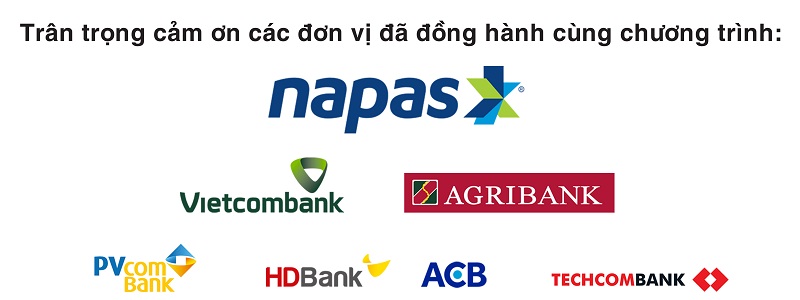Consumers need to respect the principle of "you borrow - you pay back"
Along with the trend of cashless payment, the habit of spending and paying by credit card is also increasingly chosen by many consumers. From buying and paying directly at stores, supermarkets, to paying when buying online, everything has become easier and faster than ever.
Moreover, with the feature of spending first and paying later, using credit cards is also a smart way of consumption as well as providing an effective personal financial management tool for consumers. Therefore, developing credit cards is also considered a solution to promote consumer credit, contributing to the development of the economy of countries.
However, after a number of recent disputes and complaints related to opening and using credit cards reported in the media, some customers are cautious, hesitant, and even "turning their backs" on credit cards.
Speaking at the workshop “Promoting the potential of domestic credit cards towards a cashless society” organized by Lao Dong Newspaper on May 21, Mr. Ngo Thanh Huan - CEO of FIDT Investment Consulting and Asset Management JSC - said that in the Vietnamese financial market, banks are considering credit cards as a payment, consumption, and even cash withdrawal solution... to bring many benefits to users. However, this also promotes overspending due to chasing promotional programs, withdrawing cash from cards, and paying in installments without a plan, leading to bad debt.
Mr. Ngo Thanh Huan cited a story that caused a stir in public opinion in 2024 regarding a credit card debt of VND8.5 million, which after 11 years suddenly increased to VND8.8 billion - equivalent to the average asset value of the top 5% richest people in Vietnam (according to statistics from the World Inequality Database). Although the incident was clarified and calmed down by the bank in the media, it still could not stop the "trend" of inventorying and canceling cards, causing many other banks to be affected in a short time.
The expert emphasized that the reasonable use of credit cards should also be applied to truly optimize finances for each family. It is necessary to understand that cash withdrawals will be charged immediately and not interest-free (usually this amount is not small). It is necessary to have a spending plan to avoid the habit of lifestyle inflation affecting long-term financial accumulation and card debt payment plans. It is necessary to understand how credit card interest is calculated, not just paying the minimum will not be charged interest. Equally important is to protect the card carefully and lock the card immediately when lost. Consumers need to respect the principle of "borrowing - paying back".
Update personal finance knowledge to even bank employees
To effectively develop credit cards, especially domestic credit cards, towards comprehensive finance, Mr. Ngo Thanh Huan recommends:
Firstly, there should be programs to popularize basic financial knowledge, instead of just focusing on the functions of cards to people in small provinces and industrial zones. The majority of people here are self-employed, manual laborers, workers and office workers with average incomes. This is also a group of people who are susceptible to black credit, have low access to financial products and are also the main target of the comprehensive financial program. It is necessary to adjust the mindset of this group of customers through coordination with agencies such as the Youth Union, the Fatherland Front, the Women's Union, etc.
Second, to improve people’s financial literacy, the banking staff themselves must also be updated on their knowledge of personal finance. When the “frontline” staff themselves are still quite weak and have a widely inconsistent framework of competencies, it is very difficult to change the market and support people.
Third, design more flexible fee groups and incentive programs according to each segment of consumer behavior, income and location to optimize coverage when implemented in practice.
Fourth, professionalism and transparency in consulting on interest calculation and points to avoid when using cards. The trend of the world financial market has long shifted to a customer-centric direction, however, the Vietnamese financial market is still very product-push with sales pressure and little attention to customer value and experience.
According to experts, in addition to solutions to improve the legal framework and technological infrastructure to promote the Government's card activities, improving financial literacy to help people have confidence and proactively integrate into the general trend is also a solution that needs to be promoted. When there is a lack of financial knowledge, just a few small incidents can weaken confidence and slow down the progress of the direction of cashless payments.
Speaking at the workshop, Deputy Governor of the State Bank Pham Tien Dung assessed this as a good perspective on financial optimization, suggesting that banks study the issues raised by Mr. Huan to develop credit cards as well as limit negative effects. The ultimate goal is to move towards inclusive finance, helping people access financial services at low prices and with reliability.









